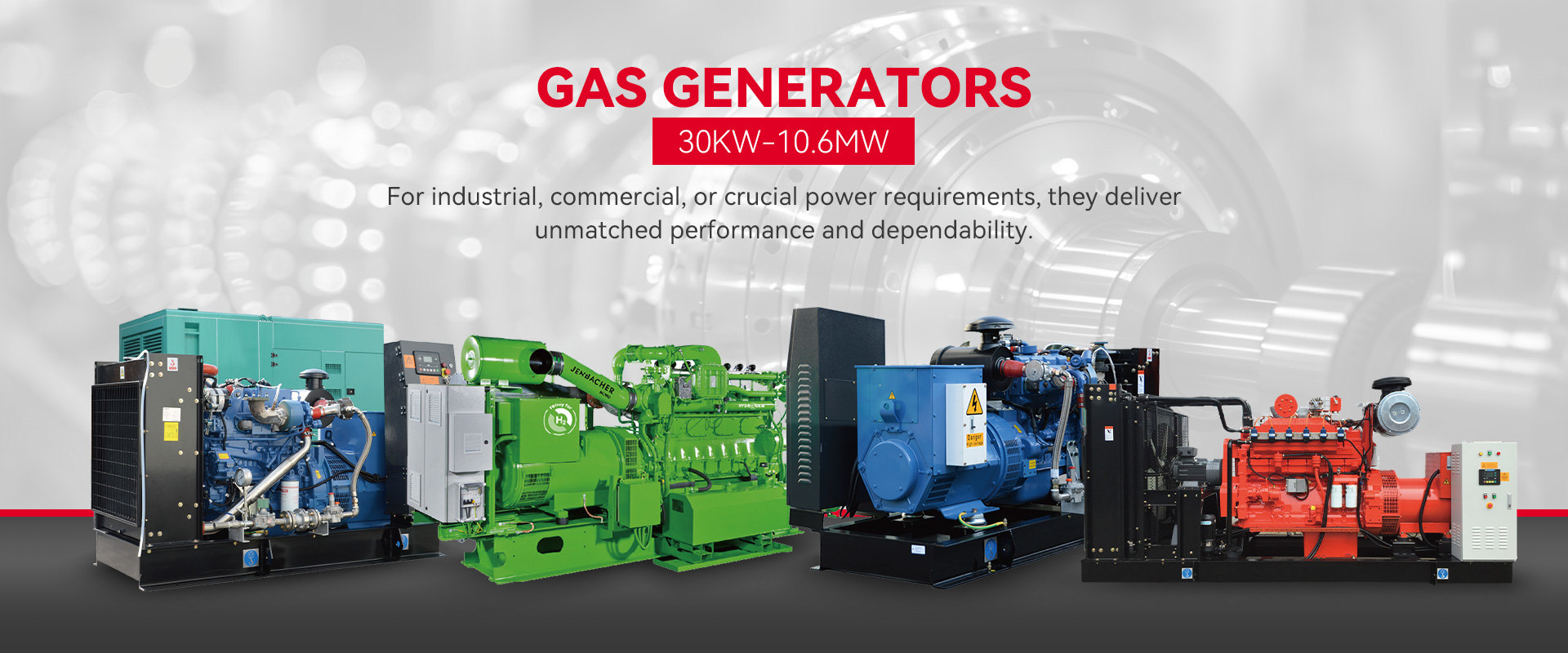Natural Gas Vs. Diesel: Which Generator Set Is Meets Your Needs?
In the arena of backup power generation, two prominent options stick out: propane and diesel generators. In the event the power goes out, as well as the requirement of it will become critical, deciding on the best generator set could make all the difference. But wait, how can you decide between natural gas and diesel generators? They all have its very own pair of benefits and drawbacks, and the choice ultimately is determined by your specific needs and circumstances.

In this article, we are going to delve into the distinctive features, advantages, and cons of gas and heavy duty diesel generators sets, making it possible to produce a well-informed decision on what option aligns best together with your needs.
Natural Gas Generators
Advantages
Cleaner Emissions: Most significant advantages of gas main generators is their lower environmental impact. When gas main burns, it generates fewer harmful emissions, like particulate matter, nitrogen oxides, and sulphur dioxide, than the diesel genset. This makes gas generators a greener choice for those concerned about quality of air and environmental sustainability.
Cost-Effective Fuel: Gas main can often be cheaper than diesel fuel. The fee savings might be significant in the long run, specifically if you intend to use your generator frequently. Furthermore, the availability of natural gas is commonly more stable, reducing price fluctuations.
Less Maintenance: Gas generators typically require less maintenance than their diesel counterparts. This is caused by the cleaner-burning nature of gas main, which ends up in fewer deposits and soot buildup within the engine, extending the generator’s lifespan.
Quieter Operation: Gas generators have quieter operation. This is a vital consideration in residential areas and settings where noise pollution must be minimized.
Disadvantages
Limited Fuel Storage: A drawback of natural gas generators is addiction to a nonstop way to obtain gas main. This could be problematic during extended power outages or perhaps remote areas where a consistent gas main supply may not be available.
Lower Energy Density: Propane features a lower energy density in comparison with diesel, meaning you could possibly need a larger storage capacity or higher frequent refuelling for a similar power output.
Lower Fuel Efficiency: Gas main generators usually are less fuel-efficient than diesel generators, which could increase operational costs in the long run.
Lower Portability: Due to requirement of a separate natural gas supply, these generators are less portable and versatile than diesel generators.
Diesel Generators
Advantages
High Energy Density: Diesel fuel is renowned for its high energy density. Therefore diesel generators can provide more power inside a smaller package, causing them to be suited to applications where space is limited.
Fuel Storage: Diesel generators have the advantage of to be able to store fuel longer periods without degradation. This will make them a trusted option for backup power in remote locations and throughout long-term power outages.
Fuel Efficiency: Diesel generators are known for their fuel efficiency, consuming less fuel for a similar power output as gas generators. This leads to lower operational costs.
Greater Reliability: Diesel engines are generally better quality and sturdy, be responsible for greater reliability in demanding conditions. They are generally the go-to decision for mission-critical applications.
Disadvantages
Emissions and Environmental Impact: Diesel generators emit higher numbers of pollutants, including nitrogen oxides and particulate matter, which can have side effects on quality of air and public health. Stricter emissions regulations have already been carried out to mitigate these problems.
Noise Levels: Diesel generators are generally noisier than natural gas generators, which can be a problem in areas or where environmental noise is really a consideration.
Fuel Availability and price: Diesel fuel can be costlier and subject to price fluctuations. Additionally, storing large quantities of diesel fuel can cause safety and environmental risks.
Maintenance Requirements: Diesel generators typically require more frequent maintenance because of soot and carbon buildup within the engine, which can boost the price tag of ownership.
When you should Choose Natural Gas Generators?
Environmental Concerns: If you prioritize environmental sustainability and cleaner emissions, a natural gas generator will be the strategy to use.
Cost Savings: If you’re looking to reduce fuel costs over the long term and also have usage of the best propane supply, gas generators could be more cost-effective.
Quiet Operation: In residential areas or places where noise levels has to be kept down, propane generators are the quieter choice.
More uncommon Use: If the generator functions as a backup for infrequent power outages, the lower maintenance requirements of gas generators make them a handy option.
When you should Choose Diesel Generators?
High Power Requirements: If you need a high-power output inside a compact package, diesel generators, with their high energy density, would be the better option.
Reliability: For mission-critical applications where reliability is paramount, like data centres or healthcare facilities, diesel generators are often preferred because of their robust and sturdy engines.
Remote Locations: In areas with limited entry to an organic gas supply or during long-term power outages, diesel generators making use of their reliable fuel storage will be the more practical choice.
Frequent Use: In case your generator will see frequent use and also you prioritize fuel efficiency, diesel generators may be more economical in the long run.
Conclusion
The choice between gas and diesel generators is dependent upon your distinct requirements, budget, and environmental concerns. Both forms of generators have their own benefits and drawbacks, along with the key’s to carefully evaluate your needs and priorities before you purchase. Additionally, be sure to understand local regulations and emissions standards that will affect your decision.
More details about diesel engine visit our net page
